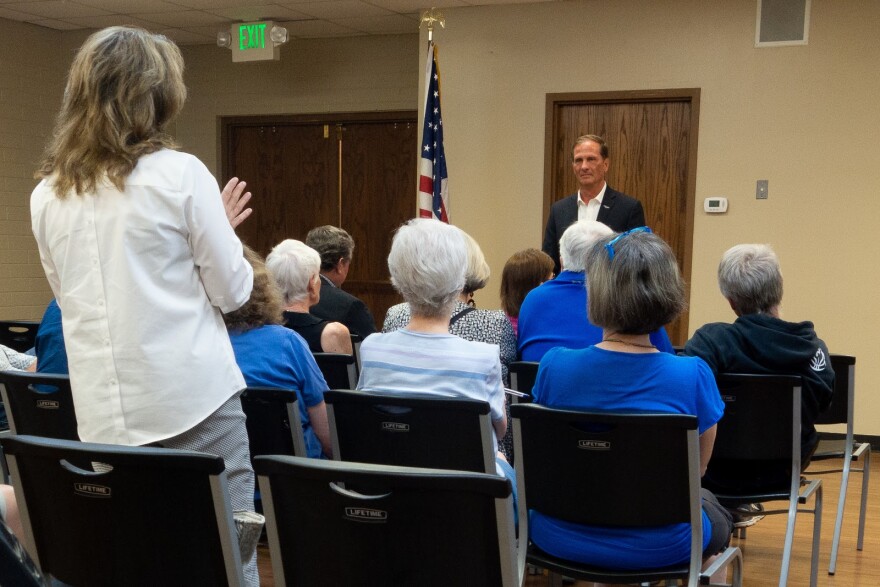In a wide-ranging discussion at a town hall in Hurricane on Monday night, Congressman Chris Stewart said he was conflicted on the issue of gun control in the wake of two mass shootings last weekend.
“I am a supporter of the Second Amendment. It’s a constitutional, basic, fundamental right,” he said. “But at the same time, we have to be reasonable in recognizing that if you’re mentally ill, if you’ve threatened people, you probably shouldn’t have a weapon.”
The town hall was the first public meeting held by a Utah lawmaker since more than 30 people died in shootings in El Paso, Texas and Dayton, Ohio last weekend. Stewart said that while his views on gun control policy have not changed since he addressed this issue in a St. George town hall last March, there is now greater urgency to implement changes to prevent future tragedies from taking place.
Stewart will be making several over stops across his district later this week as Congress is now in recess. He will hold two more town halls this Wednesday: the first, in Junction at 10 a.m. and the second, in North Salt Lake at 6:30 p.m..
During the town hall, Stewart also revisited his stance on President Donald Trump, bristling at what he described as the president’s disregard for the national debt but also commending his commitment to implementing conservative policies.
“You have to give him credit for this,” Stewart said. “This president says something and he means it.”
In the wake of last weekend’s shootings, which some have connected to Trump’s rhetoric on race and immigration, the remark drew outcries from the audience, including concerns that the president is “a racist guy.”
Congressman Stewart did not address the issue and called for the next question.
In further comments about the shootings, Stewart added that he is a proponent of extreme risk protection orders, also known as “Red Flag Laws,” which allow family members to request a judge temporarily prevent at-risk individuals from possessing firearms.
The Utah Legislature rejected a similar bill earlier this year but similar policies have been passed in 15 states and the District of Columbia.
While gun control was the most immediate topic, the issue that received the most attention was healthcare.
Catherine Mitchell, a St. George resident and former chief financial officer of several medical organizations, recounted a recent experience in which she suffered a heart attack in rural France and received “the best treatment” from the country’s universal healthcare system. She then asked the congressman to describe his plans for ensuring that all Americans are able to access healthcare services.
Stewart said her experience was an anomaly and that universal, government healthcare would not work in the United States. He cited what he described as the inefficiencies within Veterans Affairs healthcare system as an example. Separately, he voiced concerns about the cost of such a program and the limits he says it would impose on personal freedoms.
“The problem is that … you compel people to do it,” he said. “You take away their freedom, you take away their choice. You don’t get to keep your private health insurance.”
The congressman also addressed several other issues, including infrastructure and growth.
He spoke in favor of both the Lake Powell Pipeline and the controversial Northern Corridor project, a roughly two-mile stretch of road that would create an alternate route around St. George by bisecting the protected habitat of the Mojave Desert tortoise, which is classified as threatened under the Endangered Species Act.
David Fuchs is a Report for America corps member who reports from KUER's Southwest Bureau in St. George.




